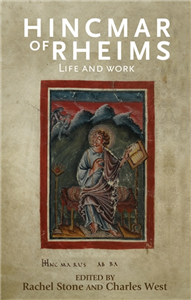Roadworks
Medieval Britain, medieval roads
by Anke Bernau, Valerie Allen, Ruth Evans
Roadworks: Medieval Britain, medieval roads is a groundbreaking interdisciplinary study of roads and wayfinding in medieval England, Wales and Scotland. It looks afresh at the relationship between the road as a material condition of daily life and the formation of local and national communities, arguing that the business of road maintenance, road travel and wayfinding constitutes social bonds. It challenges the long-held picture of a medieval Britain lacking in technological sophistication, passively inheriting Roman roads and never engineering any of its own. Previous studies of medieval infrastructure tend to be discipline-specific and technical. This accessible collection draws out the imaginative, symbolic, and cultural significance of the road. The key audience for this book is scholars of medieval Britain (early and late) in all disciplines. Its theoretical foundations will also ensure an audience among scholars of cultural studies, especially those in urban studies, transport studies, and economic history. ;























